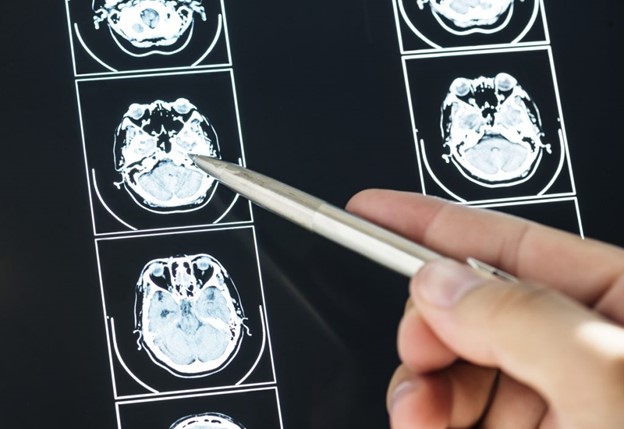In the wake of an accident, amidst the flurry of emotions and concerns, one often overlooks the potential signs of a silent threat, a brain injury. Beyond the visible wounds, these injuries can manifest in subtle yet alarming symptoms. From persistent headaches to disruptions in vision or speech, the indicators are varied and sometimes cryptic. However, recognizing them is not just crucial for health but also for legal implications. Understanding these symptoms can be pivotal in post-accident legal proceedings, ensuring proper compensation and care for those affected. It’s a matter of both well-being and justice.
Loss of Consciousness
One of the most alarming signs of a brain injury is a loss of consciousness following an accident. While loss of consciousness can vary in duration from a few seconds to several minutes, it should never be taken lightly. Even a brief loss of consciousness can indicate significant trauma to the brain, such as a concussion or a more severe injury. If you or someone you know experiences a loss of consciousness after an accident, seeking immediate medical attention is imperative. Hiring a brain injury attorney and seeking compensation for your losses is also important.
Persistent Headaches
Persistent or worsening headaches in the aftermath of an accident can also be indicative of a brain injury. These headaches can be minor to severe and might come with accompanying symptoms like light and sound sensitivity, nausea, and dizziness. Even though headaches are frequently experienced after trauma, they should not be disregarded, particularly if they continue or get worse over time. Finding the underlying cause of the headaches and facilitating the proper treatment can be accomplished by seeking medical assessment and diagnosis. Speaking with a brain injury lawyer, you may ensure that your legal rights are upheld and that you get paid fairly for your losses and injuries.
Confusion and Disorientation
Confusion and disorientation are hallmark symptoms of a brain injury, especially in the immediate aftermath of an accident. Individuals may experience difficulty concentrating, remembering the details of the accident, or understanding their surroundings. They may also exhibit changes in behavior or personality, such as irritability, agitation, or mood swings. Recognizing these signs of cognitive impairment is crucial for seeking prompt medical attention and initiating appropriate interventions to prevent further damage to the brain. If you or a loved one has disorientation or confusion following an accident, you must consult with a legal expert to learn about your legal rights and choices.
Memory Loss
Memory loss, both short term and long term, can occur as a result of a brain injury sustained in an accident. Individuals may have difficulty recalling events leading up to or following the accident and gaps in their memory of the accident. Memory loss can significantly impact daily functioning and quality of life, requiring comprehensive evaluation and management by medical professionals. Hiring a legal expert can assist you in pursuing compensation for the inflicted physical, psychological, and financial hardships if memory loss is linked to brain damage brought on by the carelessness of another person.

Changes in Sensation or Motor Function
Changes in sensation or motor function, such as numbness, tingling, weakness, or coordination problems, can also indicate a brain injury. These symptoms may affect one or more limbs and may be accompanied by difficulty in walking, balancing, or performing routine tasks. Recognizing these signs of neurological impairment is crucial for initiating appropriate medical treatment and rehabilitation to optimize recovery. Consulting with a legal expert can help ensure that you receive the necessary support and resources to cope with the long-term effects of the injury and pursue compensation for your losses.
Conclusion
In the intricate aftermath of a car accident, understanding the signs of a brain injury becomes paramount. These symptoms, though subtle, hold immense significance, not just for personal wellbeing but also for legal recourse. By recognizing and addressing them promptly, individuals can safeguard their rights, ensuring appropriate compensation and support for recovery. In the legal arena, awareness of these symptoms strengthens one’s case, highlighting the full extent of the impact and the need for comprehensive care. Prioritizing both physical and legal considerations is vital in navigating the aftermath of an accident involving a potential brain injury and forging a path toward healing and justice.
Did you find this helpful? Check out our other helpful articles on our website.
Read Also
- Modern Approaches to Adolescent Mental Health Treatment for Lasting RecoveryWith increasing numbers of teens experiencing emotional and behavioral health concerns, adolescent mental health treatment has become more essential than ever. Conditions such as anxiety, depression, trauma and mood instability are on the rise, and effective support must evolve with these growing needs. Today’s treatment models blend evidence-based therapy with flexible access and holistic care, giving… Read more: Modern Approaches to Adolescent Mental Health Treatment for Lasting Recovery
- How to Find a 5-Star Dentist Near YouChoosing a dentist is more than just finding someone who can clean your teeth. It’s about selecting a trusted partner in your long-term oral health. A 5-star dentist not only provides excellent clinical care but also delivers a positive patient experience, from the moment you walk in until the moment you leave. Whether you’re new… Read more: How to Find a 5-Star Dentist Near You
- Your Easy-Peasy Guide to Brewing Amazing MatchaHey there! So, you’ve heard all the buzz about matcha – that vibrant green powder that’s not just pretty but packed with good stuff? It can seem a little fancy and intimidating at first, but trust me, making a delicious cup at home is simpler than you think. Forget complicated ceremonies for now; let’s just… Read more: Your Easy-Peasy Guide to Brewing Amazing Matcha
- Embracing Holistic Wellness: Insights from a Lansing, MI Health CenterReframing Health: Moving Beyond Symptom Management Treating only symptoms often offers quick relief, yet long-term results stay out of reach. When care zeroes in on isolated complaints, the bigger picture, such as stress, behavior, or lifestyle, often gets missed. Research shows that whole-person care, which looks at physical, emotional, and environmental factors, yields better outcomes… Read more: Embracing Holistic Wellness: Insights from a Lansing, MI Health Center
- VO₂ Max Testing Explained: What It Is & Why It Matters for Your HealthVO₂ max sounds like a term reserved for elite athletes, but it’s among the most accurate measures of your lifetime and general condition. Moreover, it goes beyond performance. Monitoring your VO₂ max will help you to ascertain your body’s capacity to control stress, its oxygen consumption efficiency, and your internal ageing process. If you have… Read more: VO₂ Max Testing Explained: What It Is & Why It Matters for Your Health
- So, what exactly is matcha?Think of matcha as green tea turned up to eleven! Instead of steeping leaves and tossing them out, matcha is made by grinding whole green tea leaves into this super-fine, vibrant green powder. You whisk it right into hot water (or milk!), meaning you’re drinking the entire leaf. That’s why folks say you get way… Read more: So, what exactly is matcha?
- How to Tell When It’s Time for Professional Senior Care SupportCaring for an aging loved one is a journey filled with love, patience, and difficult decisions. One of the toughest choices families face is knowing when it’s time to seek extra help. In this article, trusted Los Angeles caregivers for seniors explore the signs that it might be time to bring in professional support, not… Read more: How to Tell When It’s Time for Professional Senior Care Support
- Reporting a Work Injury: What Deadlines You Need to KnowAfter a workplace injury, time isn’t always on your side. Many employees aren’t aware that there are strict deadlines for reporting a work-related injury, and missing that window can put your entire claim at risk. Whether your injury was sudden or developed gradually over time, it’s essential to act quickly and follow the proper steps.… Read more: Reporting a Work Injury: What Deadlines You Need to Know









